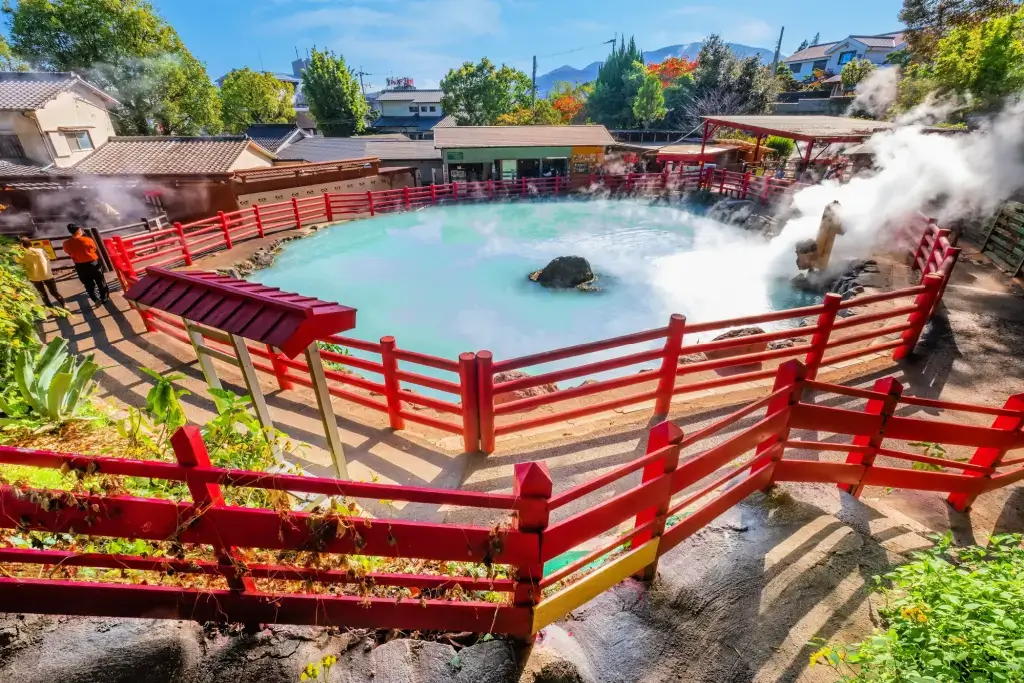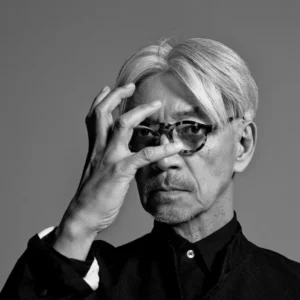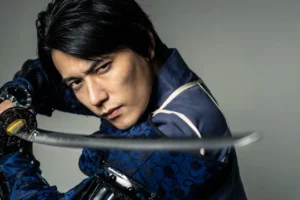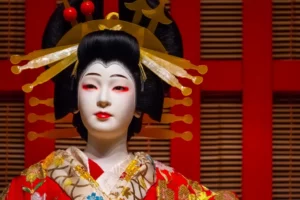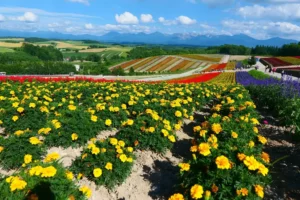Beppu is exceptionally beloved for its exclusive onsen (hot springs). This destination is the perfect place to temporarily escape the noisy urban life and enjoy the majestic natural scenery while soaking in warm, soothing waters. But that’s not all; this onsen region has much more to explore. Let’s follow along and discover this excellent location together!
Table of Contents
ToggleWhere is Beppu?
This vibrant city is located in Ōita Prefecture on Kyushu Island. It’s on the scenic coast of Beppu Bay. The city lies at the base of a dramatic landscape, with the Seto Inland Sea to the northeast and verdant green mountains to the backdrop. Founded in 1881, it has grown into one of the most renowned land of hot spring resorts, drawing visitors from all over the world. The city boasts nearly 3,000 hot spring vents, offering a variety of pleasant bathing methods such as mud baths, sand baths, and steam baths.
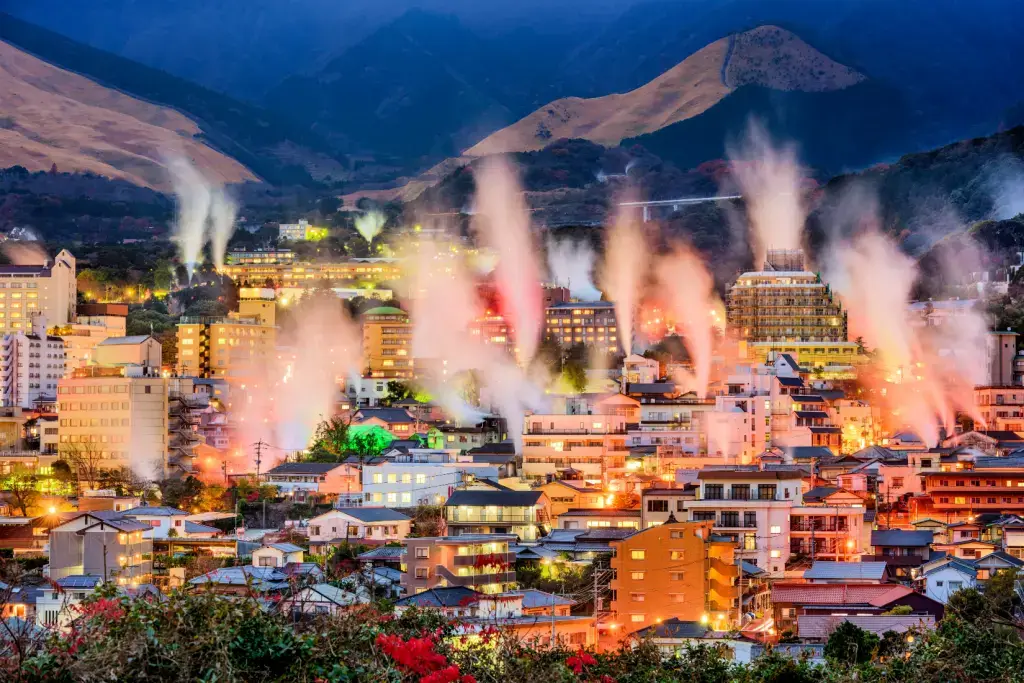
Besides its hot springs, Beppu offers a range of activities and attractions. Visitors can also hike up Mount Tsurumi, enjoy the serene beauty of Lake Shidaka, and visit numerous historical sites like the Beppu Tower and Kifune Castle. In addition, the city’s annual festivals, namely the Beppu Hatto Hot Spring Festival, celebrate the region’s abundant geothermal resources with lively events and traditional performances. This place is also famous for its traditional bamboo crafts, which make unique and charming souvenirs.
Why are their hot springs unique?
It is because the onsen system here is one of the largest in the world. It makes up over 10% of all hot springs in Japan. The water of these hot springs comes in various types, ranging from those rich in chloride to those abundant in sodium bicarbonate. Many baths may help with illnesses like nerve pain, joint problems, and tiredness. In some spots, you can even drink the spring water.
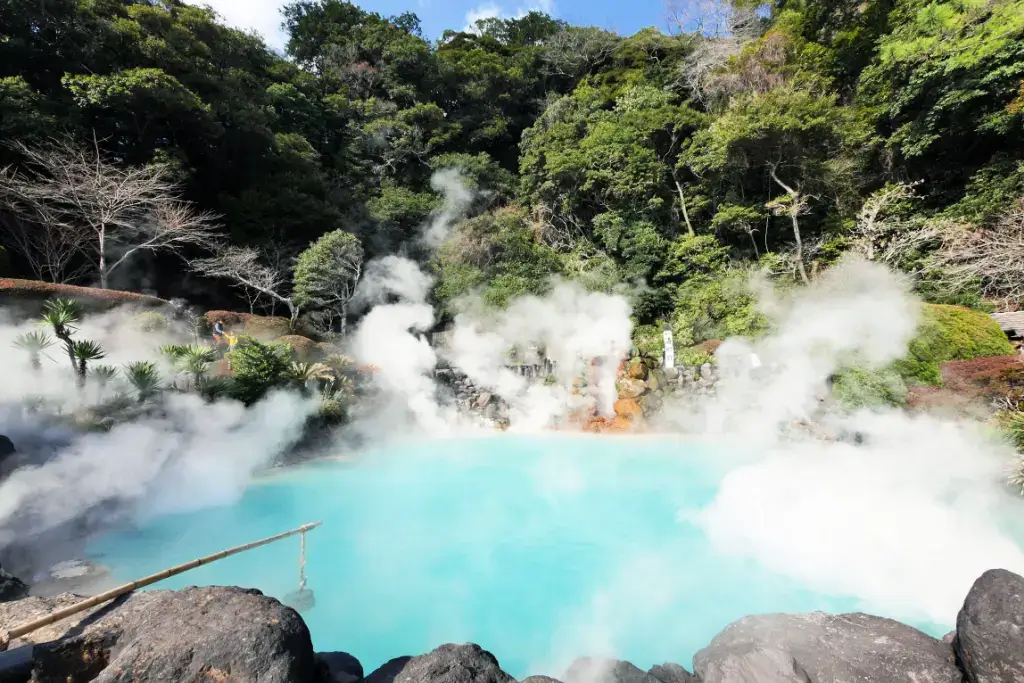
Also, Beppu’s hot springs, collectively called Beppu Hatto, are divided into eight major areas. Each area offers diverse experiences and types of onsen waters. Yet, they all have different minerals in the water may also help with various health issues like neuralgia and rheumatism. Another reason is that people also believed that gods used the onsens here for healing long ago. Even during the time of the samurai, injured warriors bathed in these hot springs to heal faster.
What else can I experience in Beppu?
Sand Baths
The sand bath’s benefits are remarkable. It induces a deep sweat even if you don’t usually sweat much. That helps your blood move better and makes you feel much more relaxed. The sands in Beppu are heated by geothermal hot springs, known to boost well-being and alleviate various health issues like muscle pain and fatigue.
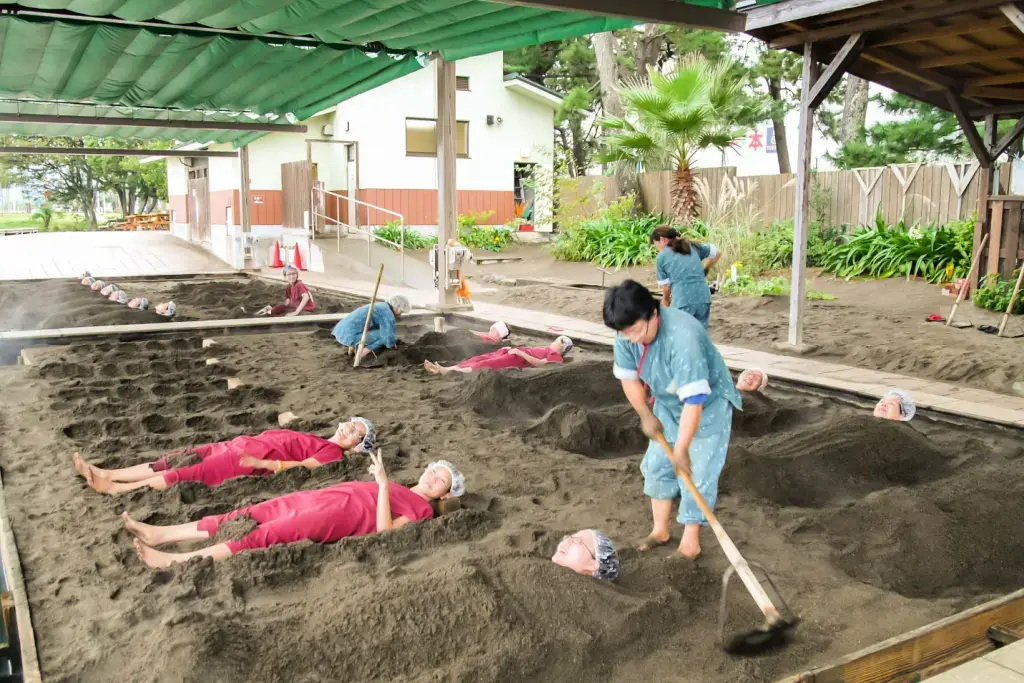
Beppu Beach Sand Bath is a popular place to try this distinctive activity. When you visit it, you’ll receive a yukata to change into, adding to the fun of the experience. However, this sand bath venue closed in April 2023. They’re working on making a better one for the future, which will reopen soon. Don’t worry too much—there are still a few other options for trying out this fun activity! One outstanding choice is Takegawara Onsen. Here, you can completely unwind in the sand indoors, perfect for warming up your body during chilly winter days.
Are you looking for wonderful snacks while relaxing in hot springs? Sakuraco delivers traditional Japanese snacks, teas, sweets, and snacks from local Japanese makers directly to your door so you can enjoy the latest treats from Japan!
Kunisaki Peninsula
The Kunisaki Peninsula is situated in the northeastern part of Oita Prefecture. This circular peninsula has breathtaking landscapes, tranquil towns, and a rich cultural heritage. Mount Futago stands proudly at its center, overlooking valleys and forests that stretch across the region.
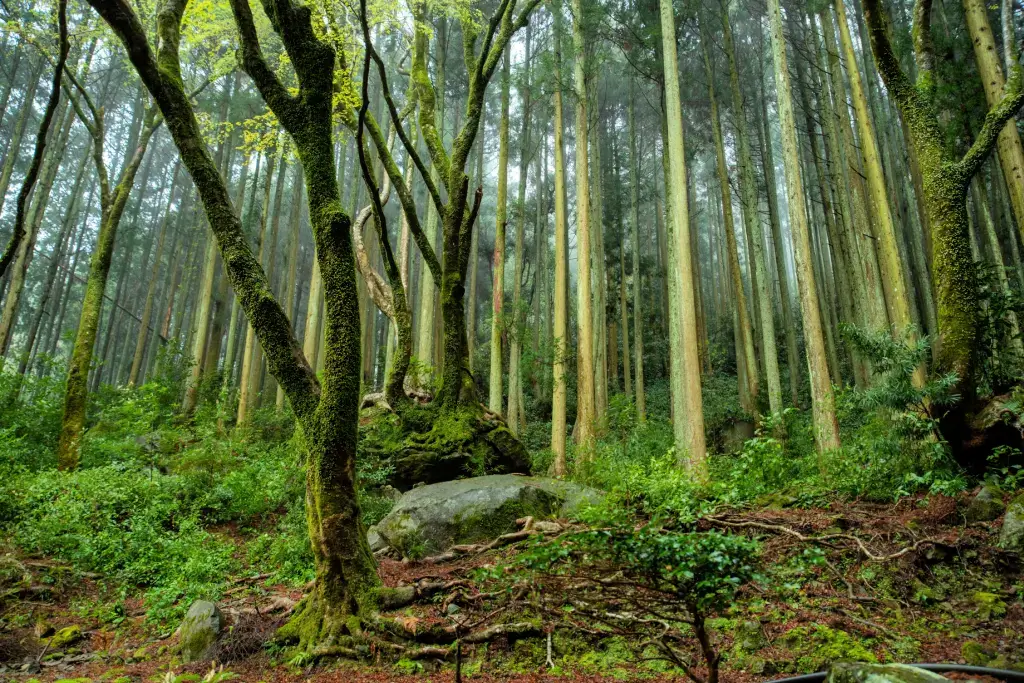
The peninsula is famous for its unique blend of Buddhist and Shinto beliefs, called “Rokugo Manzan.” You can see this in the many temples and shrines, including the Fukiji Temple and the Usa Shrine. Stone statues are a common sight here, adding to the mystical atmosphere of the region. Try local delicacies like dango jiru (dumpling miso soup), made from locally grown grains.
Mount Tsurumi
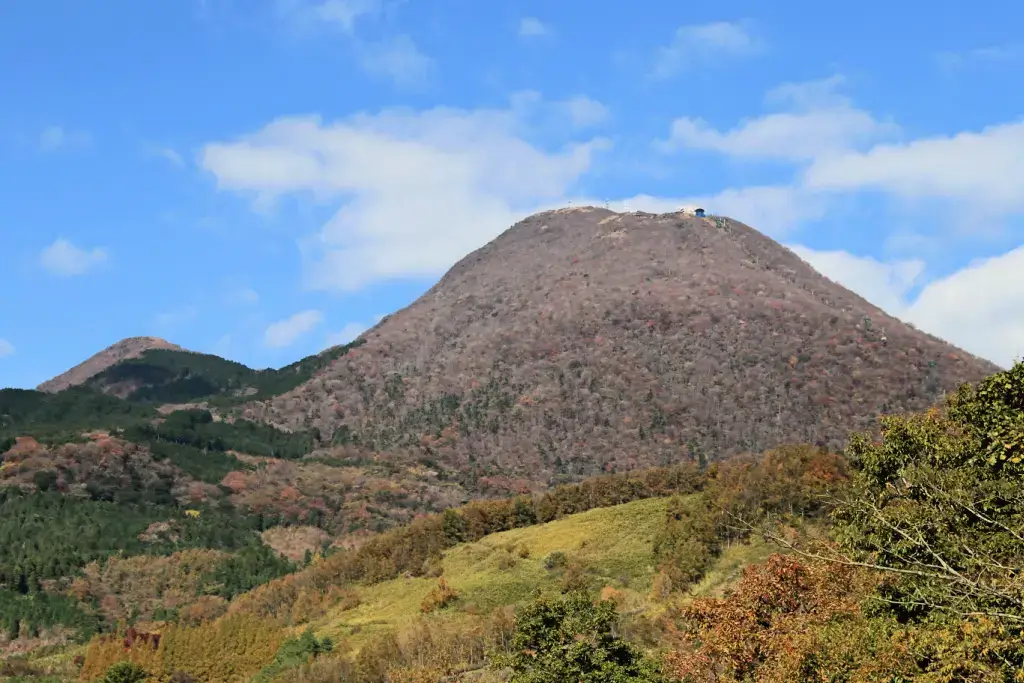
Standing at 1375 meters (4510 feet), Mount Tsurumi offers picturesque views of Oita City on clear days. It is an active volcano within Aso-Kuju National Park, and the convenient Beppu Ropeway makes it easy to reach. For adventure seekers, hiking trails link Mount Tsurumi to nearby peaks, providing more challenging treks. The mountain’s scenery changes with the seasons, with cherry blossoms in early spring, rhododendrons in late spring, vibrant autumn leaves, and frosty trees in winter. Mount Tsurumi is a popular hiking destination and a spiritual site. Visitors can explore small shrines and statues dedicated to different deities.
Jigoku Pools
The Jigoku Pools, also known as the “Hells of Beppu,” is a fascinating collection of eight hot springs. These onsens are famous for their bright colors, bubbling mud pools, and steaming waters. Unlike typical onsens, the Jigoku Pools are too hot for bathing, with temperatures around 98 degrees Celsius (208 degrees Fahrenheit). Instead, they are meant for viewing, providing a spectacular display of geothermal activity.
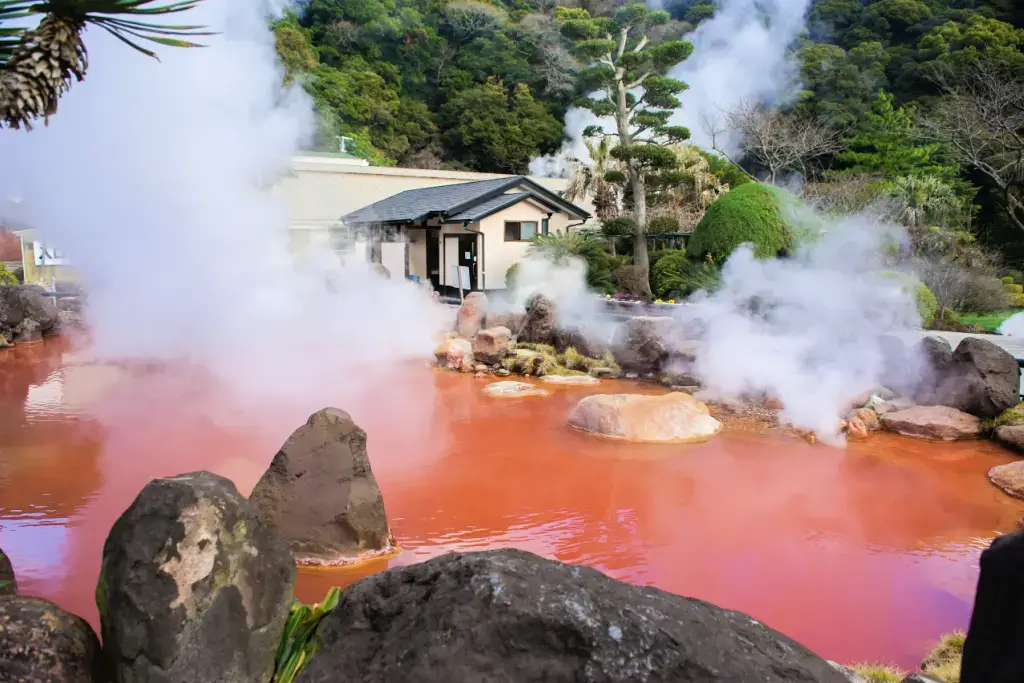
The Jigoku Pools are spread across two central districts: Kannawa and Shibaseki. These pools were historically named “hells” to warn people of their dangerous temperatures. Each one has its own unique features. For example, the Umi Jigoku, or “Sea Hell,” is known for its beautiful cobalt blue water, while the Chinoike Jigoku, or “Blood Pond Hell,” features boiling red clay.
Steam Cooking
It is impossible not to mention the exclusive delicious specialties in Beppu. You can try local food like eggs and pudding steamed in hot spring steam at most Jigoku Pools. This traditional cooking method, known as jigoku mushi (hell steam cuisine), dates back to the Edo period.
Furthermore, visitors can also try steam cooking at the Jigokumushi Kobo Steam Cooking Center near Kannawa District’s hot springs. Bring food or buy ready-to-cook dishes such as rice, seafood, meat, and vegetables. Then, rent a steam chamber to cook your meal and enjoy it there.
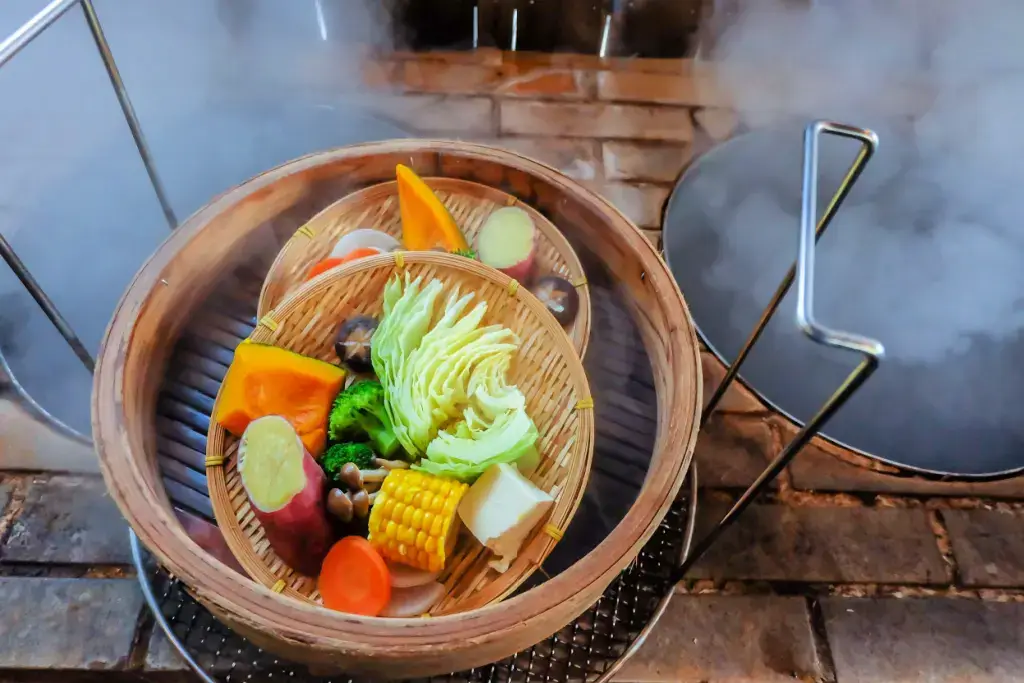
Why should I visit Beppu?
Beppu is a must-visit for its incredible hot springs, natural beauty, historical sites, and rich cultural heritage. It’ll be such a great deal for anyone to enjoy the attractive Jigoku Pools, stunning views from Mount Tsurumi, and even the unique steam cooking experiences. This lovely city can give you a perfect escape from the hustle and bustle of everyday life. What are you most excited to experience in this Japanese onsen land? Leave a comment and let us know!

